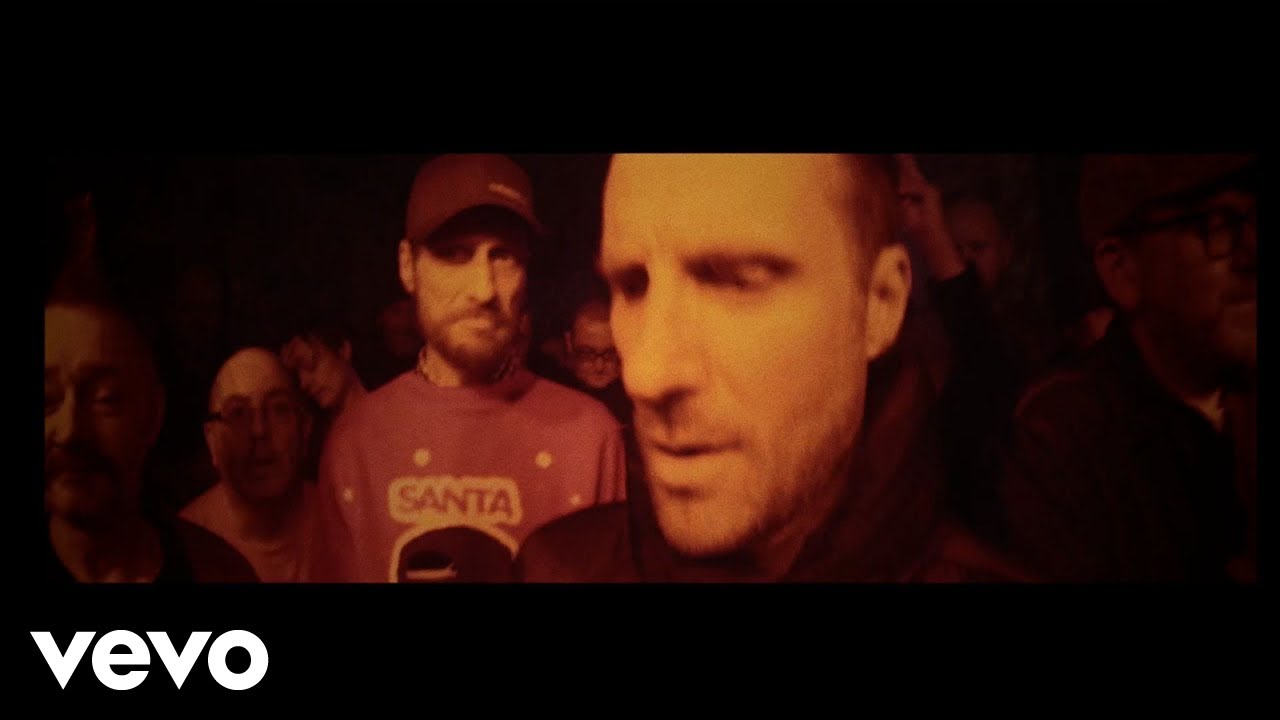I often hear Sleaford Mods derided as a geezer group. They are painted as the new Pied Pipers of post post punk for the league of baldheaded men to follow now that Mark E Smith is in the ground. They are typified as being all lager, rage and old politics. This seems to be doing our oddest pop group a disservice, and arguably plays to the way in which the current discourse around gender often seems to lump all masculinity together in a big old bin, labelling it for disposal at the nearest toxic dump. Instead, it’s always struck me that part of the reason such an unlikely duo have managed to achieve their success with fairly abrasive music is because within them there’s much for the myriad of identities that make up the British male to grasp onto. I often wonder if this has a lot to do with Sleaford Mods being made up of Jason Williamson, a straight man married with two kids and thrillingly camp stage presence, and the openly gay Andrew Fearn. British masculinity is often much more complicated, and certainly more queer, than some would like to think – just look at the way the heads of these two musicians are touching, almost tenderly, on the sleeve. Eton Alive, then, is a sarcastic repost to those who sort and dismiss whole sectors of the populace, as Jason Williamson has it in ‘Policy Cream’, "So stupid aren’t we, liked pumped up meat, wet and fried and thick to the slice."
Sleaford Mods’ eleventh album is a remarkable leap on from 2017’s English Tapas, a record of consolidation that addressed the strange situation that the duo found themselves in – going from a niche concern more accustomed to playing alongside noise artists suddenly given column inches and selling out massive venues. This progress has come hand in hand with a keener knack for more fully developed tunes to bolster Williamson’s hectoring. (Listen to the way the melody fluffs its feathers like a randy pigeon in the weird chorus to ‘Kebab Spider’, or relish the juddering lo-fi hit of disco on ‘Discourse’.) It is also, frequently, a hilarious record. The quavering of kazoo, lumbering bass and vocal leer of "big biiiiiiiird" on ‘O.B.C.T’ is one of the most joyously bonkers sonic combinations you’ll hear all year.
The cleverness of the sound design is important too. Recordings of shop door beepers and car horns fix the album, its stories and characters, in the present day. The backing tracks Fearn has developed across Eton Alive are superbly rich and dynamic, and they have become a tougher and more solid bedrock for Williamson’s evolving vocal. Where some singers hitting their middle years try desperately to cling to the youthful voice that made them (and end up sounding like a recently shot walrus in the process), Williamson – coming to public awareness later in life – seems to enjoy real freedom, and ever growing confidence. It’s fair to say that he seems to be following a similar trajectory that John Lydon followed, from The Sex Pistols into PiL, in terms of vocal technique at least. His voice conjures up distinct, odd personalities in which can be heard many aspects of a multi-faceted masculinity. ‘When You Come Up To Me’ is a case in point. The song is so accessible and strong you could imagine it being sold to a much younger soul singer, but here is crooned by Williamson in a way that suggests someone much older than his 48 years.
And then just listen to the lyrics on ‘Discourse’, which I think ought to be set out as they would be a poem, such is the air of tenderness I get from them:
"And the drivers would appreciate the quiet smile
The yellow and the red under a sheet of night
As I smoked in time with the generator’s eyes?"
And there is plenty more where that came from. Back in 2014, I praised Divide And Exit for being "as fine a document of the time they’re painted in as a Hogarth, Gillray, or Mass Observation report". I must admit that initially Eton Alive as a title might point towards more of the same, but instead it’s great to hear more intimate territories coming to the fore. These complexities of self and mental health are approached with the sensitivity you can hear in tQ’s new podcast conversation between Williamson and our John Doran, here in ‘Negative Script’ ("I don’t wanna flip the page / Of my negative script / That cornered my young age / And ran away with it"), or ‘Subtraction’, which seems to deal with how anxiety can conjure up impossibly horrific thoughts when you’re supposed to be having, simply enough, a nice time.
In Eton Alive we hear one of the finest political lyricists of the time turning inwards as he still follows a rich and empathetic way, dealing with highly relatable issues around the terrible behaviour patterns that are imposed on men by the patriarchy as much as they are on anyone else. This is exactly the sort of conversation that we need to hear men having in this day and age as we work on reconfiguring what masculinity is and can be. As Williamson has it, once again in ‘Negative Script’, "it’s hard work being kind".



